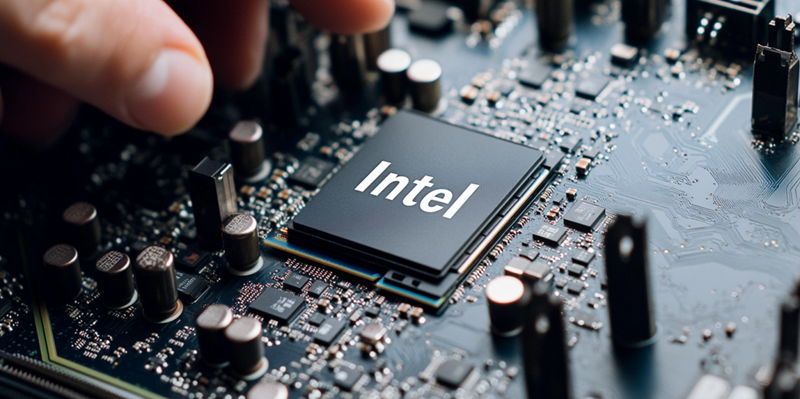With the introduction of Intel’s Core Ultra 200 CPUs, the technology world has been abuzz with speculation and curiosity about the possibilities for enhanced performance. MSI has recently unveiled a unique feature that promises to leverage these new CPUs’ full potential: the Memory Extension Mode. This new feature is embedded within MSI’s 800-series motherboards, adding substantial performance gains by reducing memory latency. To better understand this innovation, a closer look at its configurations, implementation, and impact on gaming and overall system performance is essential.
Introduction to Memory Extension Mode
As hardware enthusiasts know, memory latency has always been a critical factor in determining the overall performance of any computing system. With MSI’s new Memory Extension Mode, designed exclusively for Intel’s Core Ultra 200 CPUs, users can expect significant improvements. This new feature comes in three distinctive presets: Performance Mode, Benchmark Mode, and Memtest Mode. Each mode is tailored to optimize performance based on the workload, leveraging the peak memory configurations as determined by the processor’s integrated memory controller (IMC) and memory overclocking capabilities.
To validate the effectiveness of these configurations, MSI has conducted extensive benchmarks using a setup that includes Intel Core Ultra 9 285K, MSI MEG Z890 ACE motherboard, and high-end memory modules such as Galax DDR5-7200 and G.Skill DDR5-8200. Leveraging AIDA64 memory latency benchmarks, MSI’s Memory Extension Mode in High-Efficiency mode reduced memory latency by 12% to 16% compared to standard XMP configurations. This drop in latency directly translates into enhanced system performance, which is particularly noticeable during high-demand tasks.
Gaming Performance Enhancements
For gamers, the implications of reduced memory latency are substantial. MSI’s Memory Extension Mode has shown significant performance improvements in gaming environments, making it an intriguing option for those looking to boost their gaming rig’s capabilities without overhauling their entire setup. In tests, MSI paired the Core Ultra 9 285K with an NVIDIA GeForce RTX 4090 GPU, ensuring a high-performance environment that could truly showcase the benefits of the Memory Extension Mode.
The performance reviews were nothing short of impressive. By combining both DDR5-7200 and DDR5-8200 memory modules with XMP and High-Efficiency Mode, MSI reported gaming performance increases of 6% to 14% at 1080p resolution across various popular titles, such as Black Myth: Wukong and Red Dead Redemption 2. In certain instances, with DDR5-7200 memory coupled with XMP and High-Efficiency Mode, performance gains even reached up to 21%. This notable uplift in gaming benchmarks illustrates the potential of Memory Extension Mode in delivering an optimized gaming experience for users.
Enabling Memory Extension Mode on MSI Motherboards
For users interested in activating this performance-boosting feature, MSI has made the process relatively straightforward. Starting with its 800-series motherboards, MSI introduces Click BIOS X, a more user-friendly interface designed to make system tweaks more accessible to both novices and experts. To enable Memory Extension Mode, users need to enter the BIOS, which defaults to EZ Mode. Switching to Advanced Mode by pressing the F7 key allows access to the Overclocking page, where the Memory Extension Mode option resides.
Upon locating the feature, users can select from the available modes—Performance, Benchmark, or Memtest—depending on their specific needs. This level of customization and ease of use ensures that even users with limited technical knowledge can benefit from MSI’s innovative Memory Extension Mode without a steep learning curve. The ability to tailor memory performance settings to specific CPU and workload requirements represents a significant step forward in PC hardware optimization.
Broader Implications and Future Developments
Intel’s introduction of the Core Ultra 200 CPUs has generated significant excitement and speculation in the tech community about the potential for improved performance. MSI has recently revealed a groundbreaking feature designed to maximize the capabilities of these new CPUs: the Memory Extension Mode. This innovative feature is integrated into MSI’s 800-series motherboards and offers significant performance benefits by reducing memory latency. This enhancement is crucial for gamers and users demanding high-performance systems. To fully appreciate this advancement, it is essential to examine the configuration, implementation, and overall impact on gaming and system performance. By doing so, one can understand how this new technology can elevate the computing experience, ensuring faster and more efficient processing. As the tech world continues to evolve, innovations like MSI’s Memory Extension Mode set the stage for future advancements, making sophisticated computing power more accessible and effective for all users.

